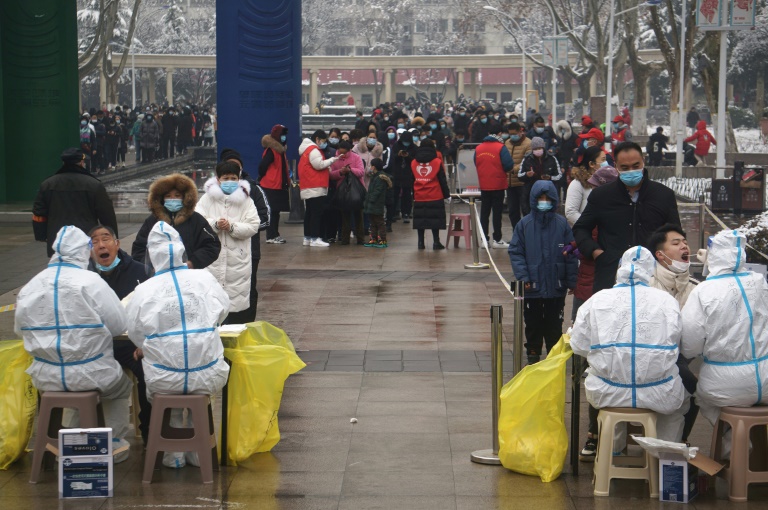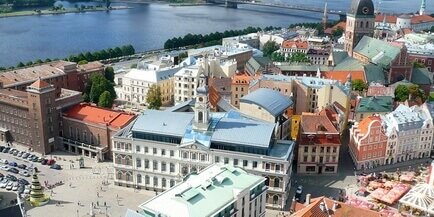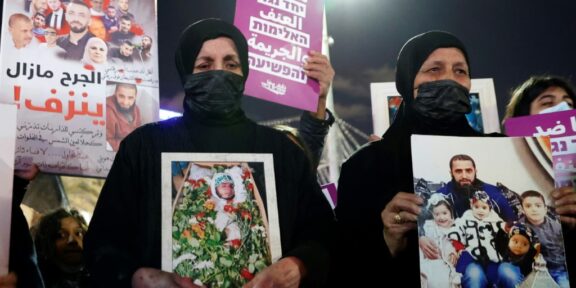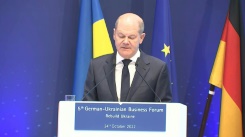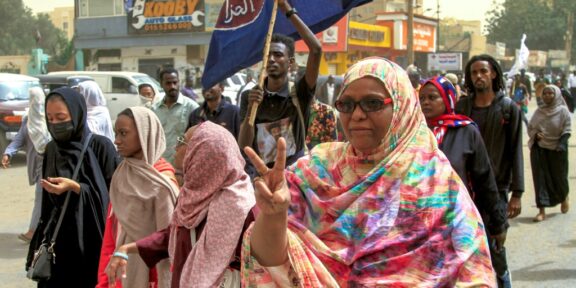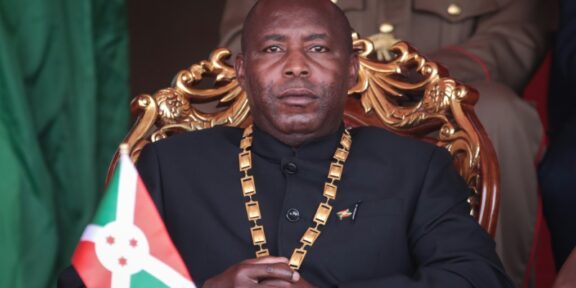Asian financial hub Hong Kong banned flights from eight nations on Wednesday as part of strict new virus curbs, with Omicron outbreaks spiralling out of control from Europe to the United States.
The new coronavirus variant is spreading rapidly across continents, leaving governments rushing to roll out vaccine boosters and bolster healthcare systems as infection numbers reach new highs.
Britain, the United States, France and Australia have all announced record case numbers in recent days, while China has imposed lockdowns in two cities and rolled out mass testing for millions as it doubles down on its “zero Covid” policy ahead of the Beijing Winter Olympics.
Hong Kong leader Carrie Lam said the city was shuttering bars and gyms and cancelling evening restaurant dining after Omicron was detected in the international business hub.
The restrictions are the latest economic blow to a city that has kept cases low but left residents cut off from the rest of the world with tight border controls.
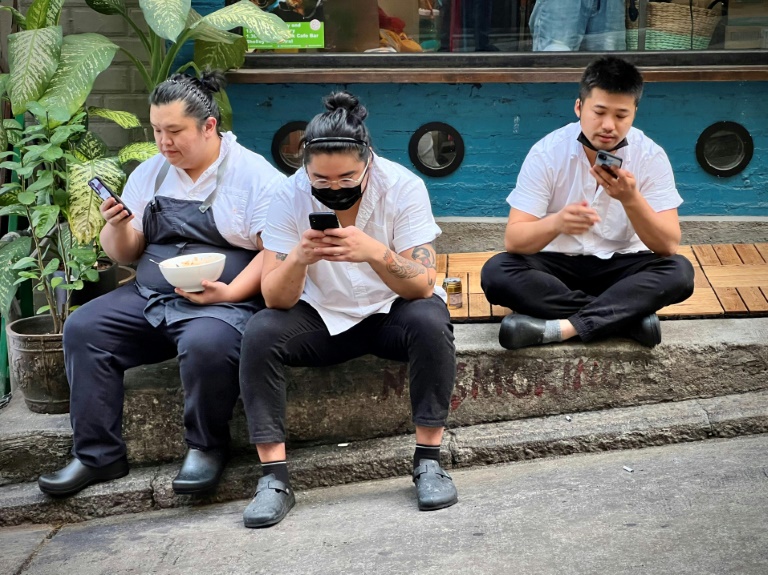
Like mainland China, Hong Kong has maintained some of the world’s harshest controls — including weeks-long quarantine periods, targeted lockdowns and mass testing.
The city had recorded 114 Omicron cases as of Tuesday evening, with a small community outbreak traced to Cathay Pacific airline staff sparking the latest curbs.
Lam said health officials feared the strain was silently spreading within the community.
Flights from Australia, Canada, France, India, Pakistan, the Philippines, Britain and the United States will be banned for the next two weeks.
Hong Kong also ordered a cruise ship carrying 3,700 people back to port for testing after nine passengers were found to be close contacts of Omicron patients.
– ‘Under control’ –
To the north in the Chinese city of Zhengzhou, 13 million residents were ordered to take Covid-19 tests Wednesday after just 11 Omicron cases were detected.
The central city is under a partial lockdown, joining millions more in the nearby cities of Xi’an and Yuzhou also living under stay-at-home orders.
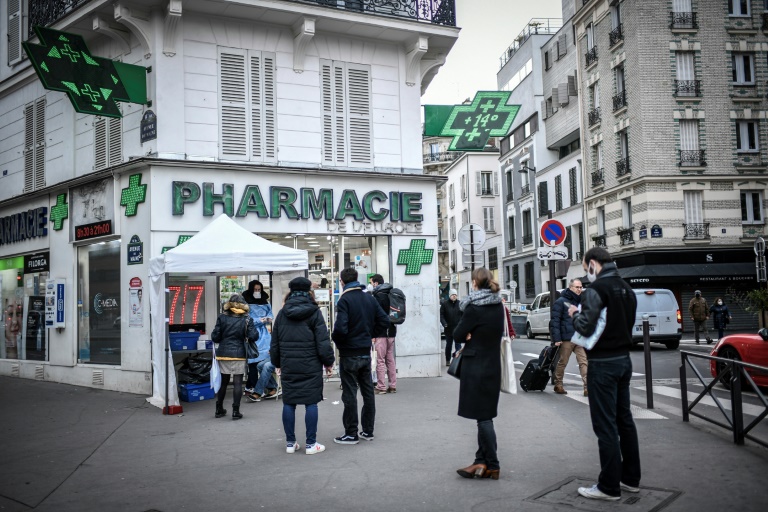
But Xi’an’s case numbers fell to their lowest level in weeks, with officials saying the outbreak had been “brought under control”.
“The epidemic is showing a downward trend,” said Ma Guanghui, deputy director of the health commission in Shaanxi province.
China has stuck to a rigid approach of stamping out Covid cases when they appear, with tight border restrictions and targeted lockdowns, since Covid-19 first emerged in the country in 2019.
But with less than a month to go until the Beijing Winter Olympics, a series of small outbreaks across the country has put the strategy under pressure.
The “zero Covid” approach stands in marked contrast to the strategy employed by many Western nations, which have chosen to live with the virus rather than return to severe restrictions.
The more relaxed policy has seen an explosion in case numbers in the West, with the United States reporting more than a million daily cases on Monday.
Britain breached 200,000 cases for the first time on Tuesday, Australia posted almost 50,000 and France registered more than 270,000, with all three countries easily topping their previous records.
India is also bracing for a new surge, with 58,000 new cases confirmed on Tuesday, more than double the number recorded three days prior.
Several cities have imposed curfews and the capital New Delhi has ordered all residents outside of essential workers to stay home this weekend.
“There is no room for complacency,” V.K. Paul, a doctor working with the government on its coronavirus response, told a press conference.
In France, President Emmanuel Macron warned people not yet vaccinated that he planned to make life difficult for them by limiting access to key aspects of life.
The government is seeking to push through legislation that will make vaccination compulsory for cultural activities, to use inter-city trains or visit a cafe, sparking a backlash among those opposed to further government edicts.
– ‘Appalling message’ –
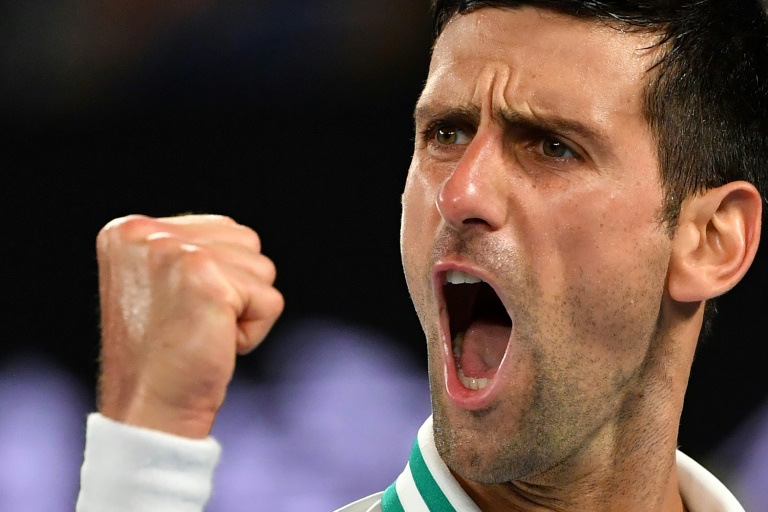
Vaccine policy sparked further anger in Australia, where world number one tennis player Novak Djokovic was given a medical exemption allowing him to play at this month’s Australian Open.
The vaccine-sceptic Serbian has repeatedly refused to confirm if he has been inoculated.
Tournament chief Craig Tiley said that the defending champion had been given “no special favour”.
But Stephen Parnis, a former Australian Medical Association vice-president, said it sent an “appalling message” to people trying to stop the spread of the virus.
“I don’t care how good a tennis player he is. If he’s refusing to get vaccinated, he shouldn’t be allowed in,” Parnis said on Twitter.
Meanwhile, Polish President Andrzej Duda tested positive for the virus and was self-isolating, his chief of staff Pawel Szrot said.
“The president is fine, has no severe symptoms and is under constant medical care,” Szrot said on Twitter.

